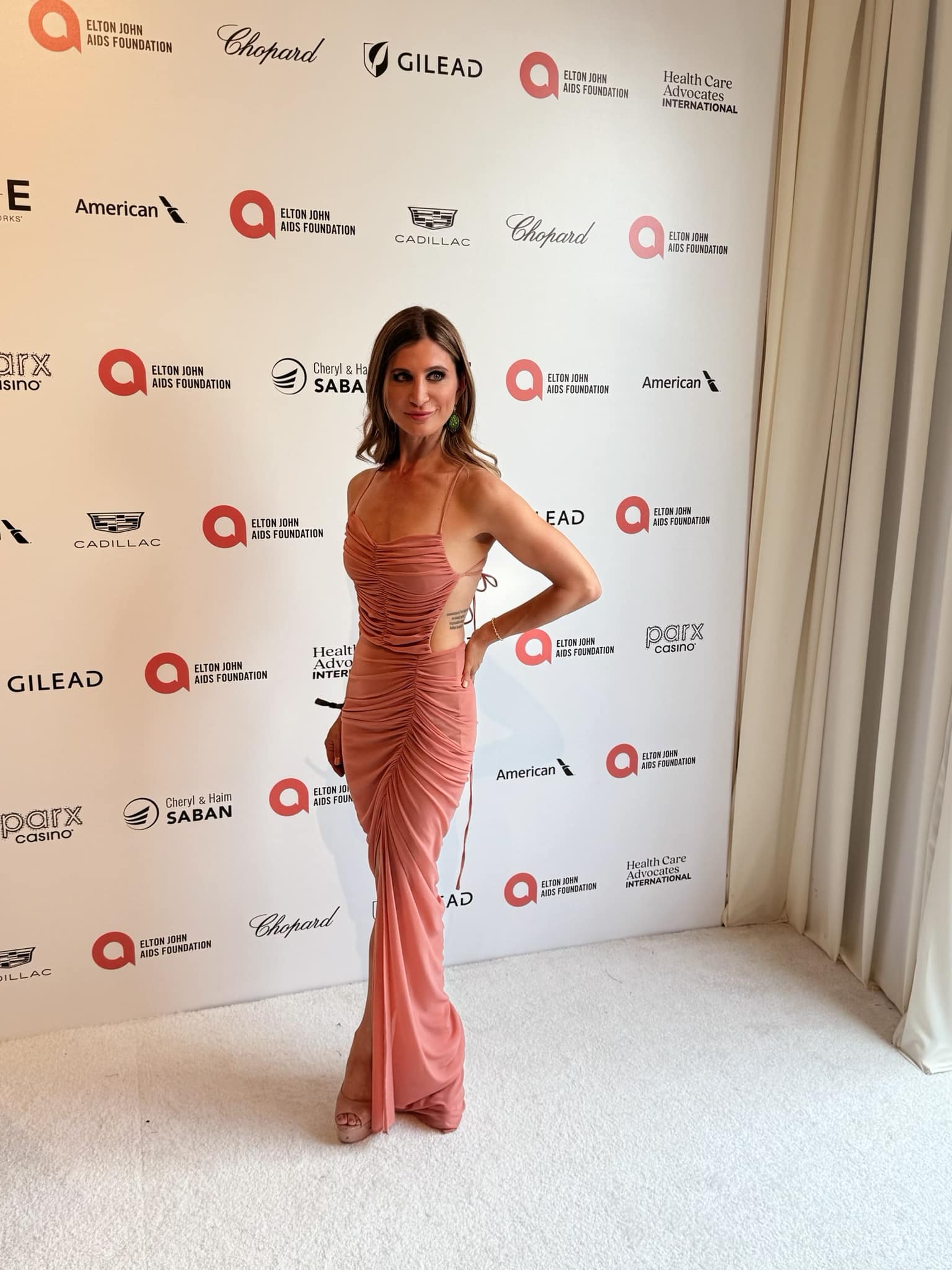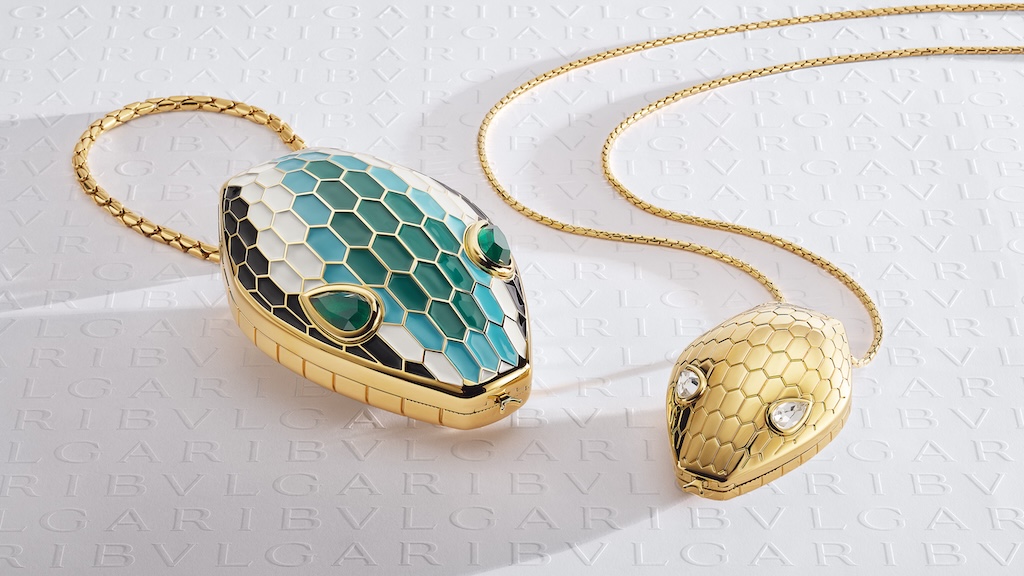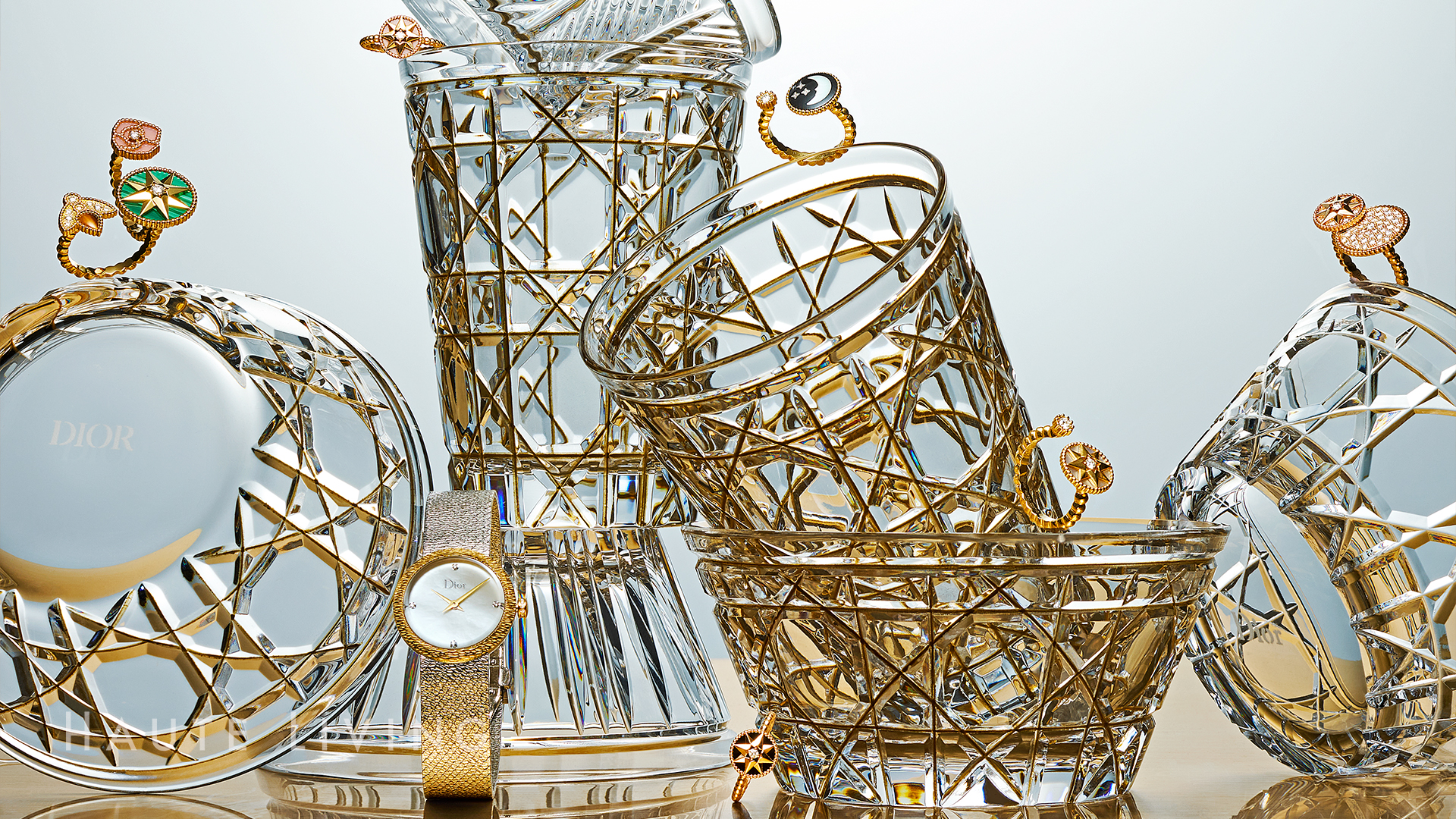Sarah Shahi On Sex, Life And Her New Netflix Series, “Sex/Life”
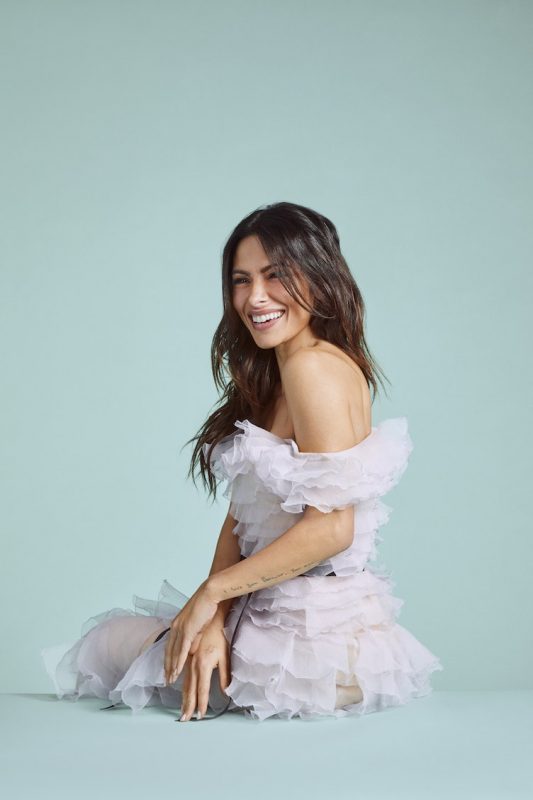 Photo Credit: Nino Muñoz for Netflix
Photo Credit: Nino Muñoz for Netflix
Sarah Shahi is about to set heads turning with her starring turn on Netflix’s new dramedy series, Sex/Life. Inspired by BB Easton’s self-published memoir 44 Chapters About 4 Men, Sex/Life is the story of a love triangle between a woman, her husband, and her past that takes a provocative new look at female identity and desire. Billie Connelly (Shahi) wasn’t always a stay-at-home wife and mother living in the suburbs. Before she married loving and reliable Cooper (Mike Vogel) and moved to Connecticut, Billie was a free-spirited wild child living in New York City with her best friend Sasha (Margaret Odette), working hard and playing even harder. Exhausted from taking care of her two young kids and feeling nostalgic for her past, Billie starts journaling and fantasizing about her passionate exploits with sexy ex-boyfriend Brad (Adam Demos), the big heartbreak she never got over. But the more Billie remembers, the more she wonders how she got here — and then her husband finds her journal. Will the truth about Billie’s past start a sexual revolution in her marriage, or lead her down a path back to the life she thought she left behind with the man who broke her heart? We’ll have to wait and see! Beyond Sex/Life, Shahi has begun working on the highly anticipated Newline/DC superhero feature Black Adam alongside Dwayne “The Rock” Johnson. Sarah will play a university professor and freedom fighter leading the resistance in Kahndaq.
Here, we talk to Shahi about sex, life and the whole damn thing.
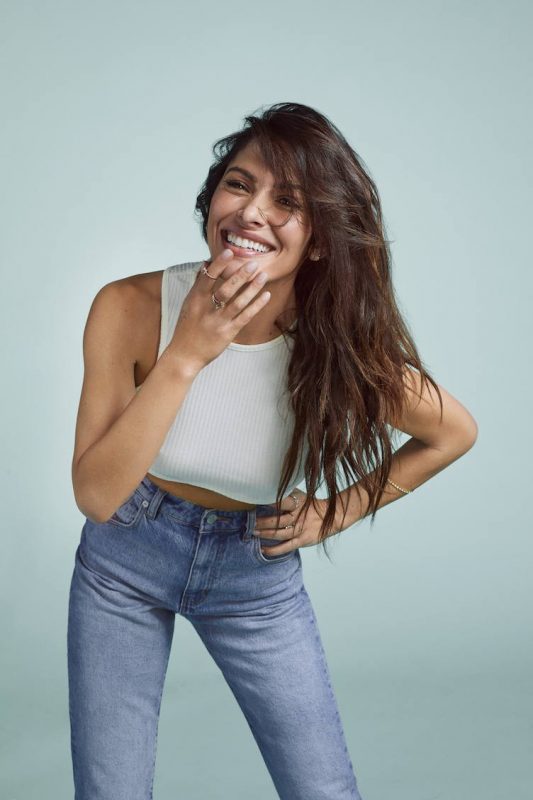 Photo Credit: Nino Muñoz for Netflix
Photo Credit: Nino Muñoz for Netflix
Can you tell me a little about what drew you to the character? And you know, what were you interested in when you took the role?
Yeah, well, what initially drew me to the character was she was, I mean, Billy was dynamite in a box, you know, she has an appetite for life that sort of larger than Texas, and I felt like the show itself, I mean, not only was the writing just out of this world, astounding, but roles like this just don’t come around very often, you know, it’s like, I got to play the span of 10 years. I got to be sexy, funny, broken, messy. You know, it felt like a one woman show in so many ways. And then on top of that, I felt like it really portrayed female sexuality in a new way, which I felt was super important, you know, it’s like the show really goes to tell that, you know, women can have a lot of different wants and desires and needs and also get off in more ways than just missionary. A lot of times female sexuality is sort of depicted, you know, through the male POV, and I felt like this was a great opportunity to kind of throw that on its head, it was directed by all women, I knew it was going to be written by mostly women show, run by a woman, so, you know, it felt like there were a lot of firsts in this way.
There’s a love triangle, kind of at the center of the story. How did you navigate that as you were playing Billy?
Yeah, you know, it was an interesting thing. I mean, Adam Demos, and Mike Vogel are such great actors that for me, all I had to do was react. I mean, I literally felt like two different people each time I was in a scene with, you know, them individually. It wasn’t that complicated in that way, you know, but the writing was just so great that if you just let the words affect you and touch you, your job was, you know, more than halfway done for you.
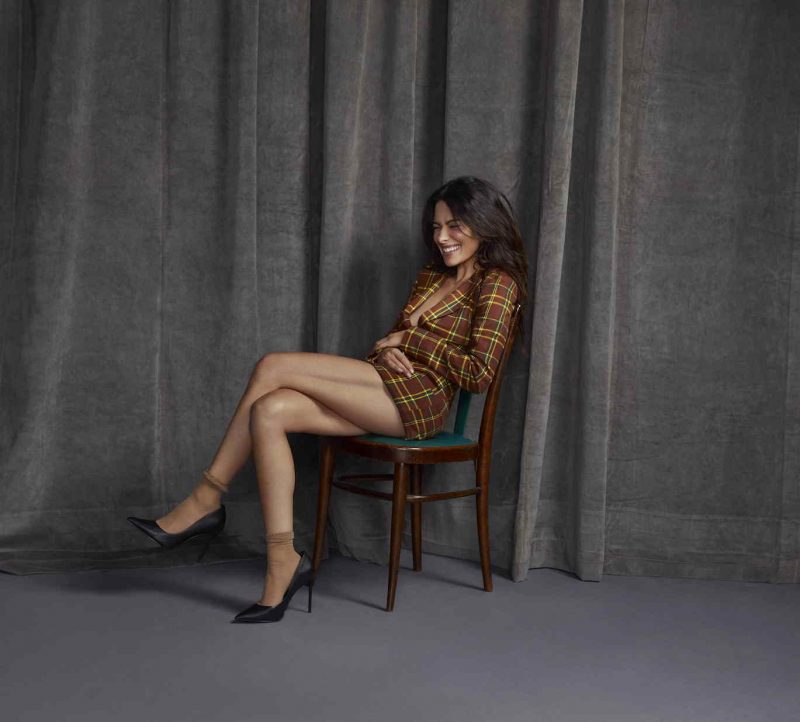 Photo Credit: Nino Muñoz for Netflix
Photo Credit: Nino Muñoz for Netflix
Now, what did you touch on it a bit, but what did the female-centric sort of show runners and writing team do? What did that do to kind of make your experience different than it’s been on other shows and give you a level of comfort?
Well, you know, I, before this show, I had never, I mostly was cast and you know, procedural stuff, and I always wanted to do something that was more vulnerable and female centric. And the fact that the show really relies, you know, sometimes on the sexual POV, and there are a lot of love scenes, you know, but these love scenes, in a way, they sort of reflect the character’s emotional point of view, to be able to have these conversations about the way a woman makes love, or a woman is turned on, or you know, how they’re stimulated. In a way, it just made it a little bit more comfortable knowing that it was a female that I was having a dialogue with, you know, not that I couldn’t do it with a male, but I think there was just an instant level of comfort that was just kind of built in, you know, considering it was so female centric, it just made me feel a little bit safer. And, you know, I just I think that it’s about time that women were able to take center stage in, you know, a lot of different ways, actually.
Let’s talk about the title. What are the first things that come to mind when you hear the words “sex” and “life”?
It’s just that, it’s sex, and then it’s life. What’s interesting about the title, in my opinion, it’s not just the two words, but it’s sort of the division between the two that I think is the most interesting, because you can take something like that, and it can be what it is, which is sex life, or it can be two incredibly different things, which is what I think the show does, well, you know, it’s like, it shows the sexual side of things, the intimacy side of things, but then also the life-y the side of things, and, you know, one of the favorite expressions that I kind of came up with for myself is life is life-y, and I think this show does a really great job of sort of depicting the rawness and the questions that come with being in a long term relationship or a marriage being a parent, you know, these are being a parent. I’m a mother of three myself, it’s a very messy thing. You know, so you can be a great mother, you can be a great wife, but then still sort of question your choices. And, you know, you can still be a mother but then still have these incredibly charged sexual desires, and I think, you know, society as a whole has told us to put that stuff away, whereas this show has the balls to sort of question those things, and Billy has the appetite to go after what she wants. So the title itself sex life, though it does represent one thing, for me, the most interesting part of that is the division of the two.
Are the sex scenes nerve-wracking, and what did you do to kind of get a level of comfort with that?
Oh, they’re always nerve-wracking. I mean, I was shaking in my boots, more so than not. We had an intimacy coordinator, and she was essential, because what we were able to do is we would rehearse the sex scenes on a weekend, and then we were able to really talk about our comforts, we were able to say, okay, you know, I feel comfortable with you touching the left side of my breast, but I don’t want you to put your whole hand on my breasts or my right as cheek as a little bit higher than my left, so can we angle that way, you know, so it became these very earnest conversations that we would all have. And more so than that, it was, you know, there were the details that were super important to me to nail down with each of the guys that I had sex scenes to do. Like, for example, the breath, the breath was something that I paid a lot of attention to, you know, because again, these sex scenes, they really informed the emotional storyline of the characters, they weren’t just sex for, it wasn’t just eye candy, there was a lot going on in the sex scenes. So you know, we would talk about the kind of breath that was had during the sex, you know, with Adam Deimos, his character, a lot of times the sex scenes were very intimate, they were very central and very deep, so the breath was quiet, it was more intimate. Sometimes it was almost like we were not making any sounds with my vocals character, the sex was hit and miss, it would start off great and then it would change, so the breath therefore had to change. So it was these kinds of details that really, you know, I felt when we did the sex scenes kind of helped me focus more on the sort of the performance, on the story side of it, and focus less on the fact that I was naked in front of at least 75 people. So yeah, you know, it was nerve-wracking.
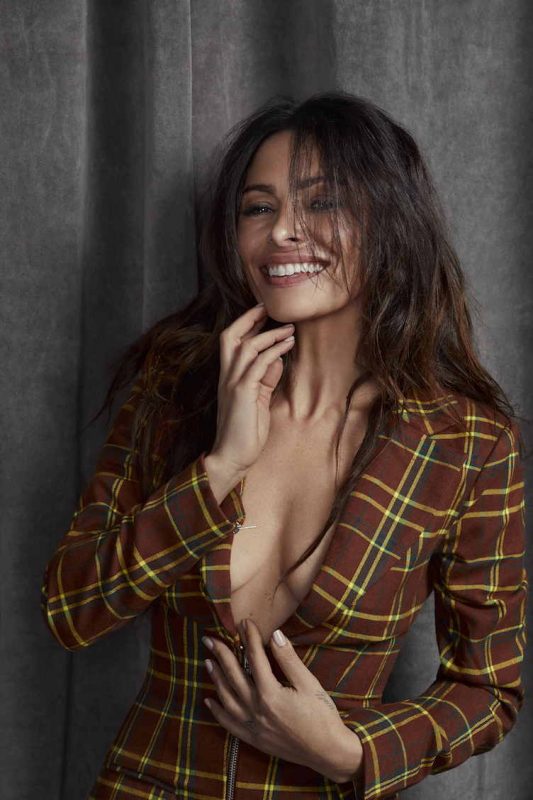 Photo Credit: Nino Muñoz for Netflix
Photo Credit: Nino Muñoz for Netflix
What is something that you hope viewers will take away from watching the series?
I hope that people find a way to relate to these characters, you know, men and women. You know, I think, like I said, you know, it’s like, whether you’re a parent, or you’re in a super long term relationship, I think that we forget this idea that we’re sexually charged beings, and that we have these desires, and we want to be fulfilled in these ways that we used to be fulfilled, and when we were in our 20s, or back before we did have kids, and, you know, I just hope that this reignites a sense of truth for people, and they’re able to sort of tap into those sides of themselves that maybe they put away because they felt they were judged, or they put away because they thought, Okay, well, I’m a mom, or I’m a dad now, and I need to act within these certain parameters, and that’s it. So, you know, I hope it’s sort of tapping back into those sexual fulfillments. And then on top of that, you know, it’s sort of this show about a woman who’s having an identity crisis, you know, and eventually, she ends up discovering the truth of who she is, the good and the bad. And so, you know, it’s like, I hope that also inspires people to do that within themselves. And, you know, when on top of that the show was excitement, fantasy filled, you know, roller coaster of a journey. So, I hope people just enjoy the escapism of it as well.
Last question. What’s the past year taught you about love life and relationships?
Yeah, well, it was an interesting thing. You know, I thought Coronavirus should also be called the truth virus, because it really sort of helped me tap into the things, you know, what was serving me and what wasn’t serving me any longer. And I often said that 2020 was the year of perfect vision. I kind of put that out there before we even hit 2020 I was like, wow, you know, it was one of those resolutions that I made in 2019. You know, it was like 2020 is gonna be the year that I see things for what they really are. And the silence that the pandemic sort of brought within everybody, at least within myself, it just had me do a lot of soul talk. And, yeah, it just really, I don’t know, it just helped me kind of discover the truth of what was working for me and what wasn’t and it gave me the courage to act on it.
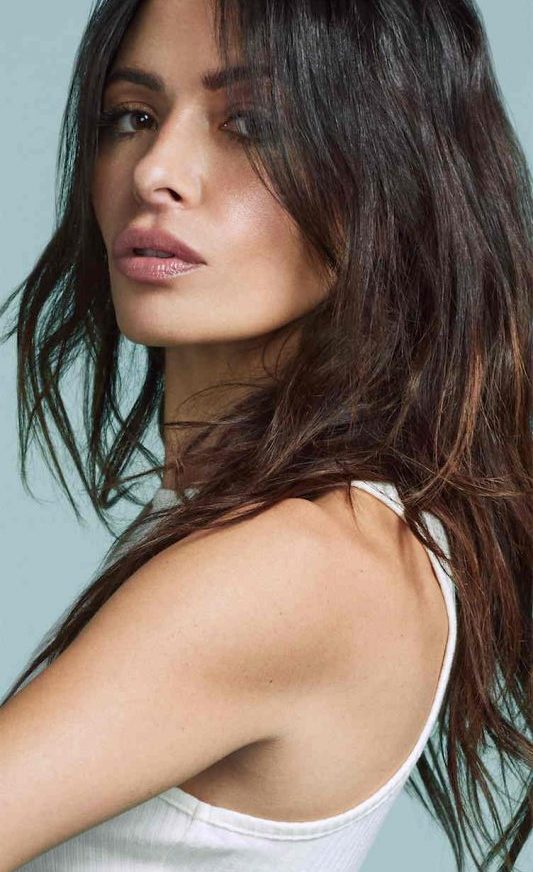 Photo Credit: Nino Muñoz for Netflix
Photo Credit: Nino Muñoz for Netflix
Follow Sarah on Instagram here

